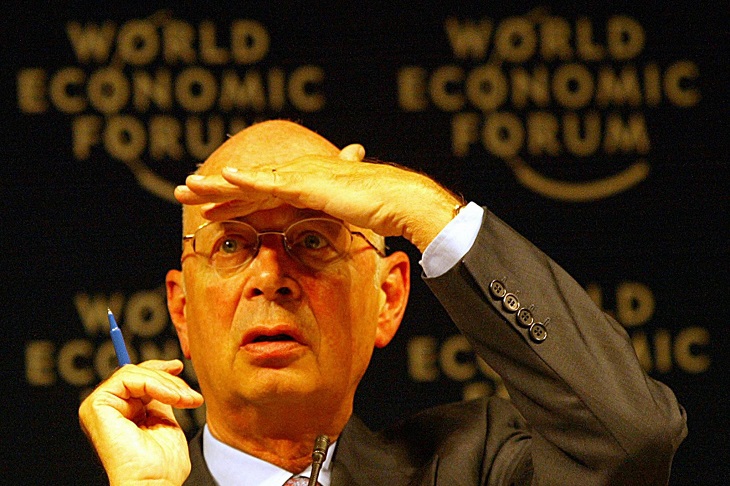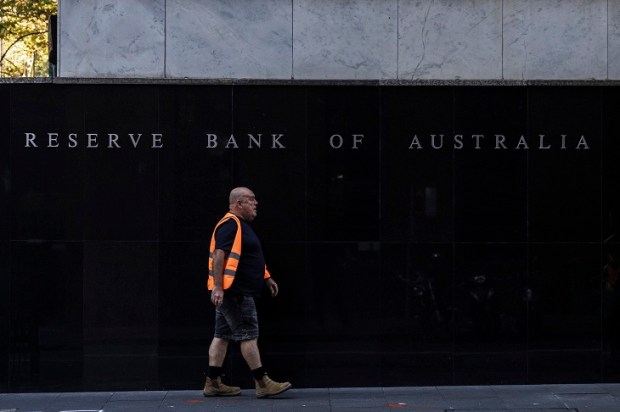‘The pandemic represents a rare but narrow window of opportunity to reflect, re-imagine and reset our world’, thus spoke Professor Klaus Schwab, founder and executive chairman of the World Economic Forum (WEF).
The terminology is confusing, the organisation believes in ‘building a healthier, more equitable and prosperous future’. To do this, we have to ‘change our mindset, create new metrics, promote an economy that serves all, and build genuine connections, to promote social innovation’ – all quite straightforward, once you have the hang of the jargon! The World Economic Forum’s role is to ‘interact with and confront issues on the global agenda’, initially on an economic basis, subsequently also addressing a range of other issues.
In direct opposition to standard Friedman economics, the new philosophy is partly the work of French economist Thomas Piketty, the doyen of the fashionable economic world, as outlined in his 2019 book Capital and Ideology. With Trotskyist parents as his role models, he has re-invented the communist ideal of wealth redistribution in a modern, more palatable, socialist format. His CV includes a spell-working for extreme left-wing British politician, Jeremy Corbyn, too extreme even for the Labour Party. Despite the success of capitalism in lifting worldwide poverty, he believes it is necessary to correct economic inequality through state intervention; this sounds awfully like another communist demand for nationalisation of the means of production.
Another other inspiration for the Great Reset comes from German author Rutger Bregman; his book, Utopia for Realists published in 2014. He suggests the solution for future unemployment can be found in a universal wage; the concept with reminiscences to the old communist saying ‘we pretend to work and they pretend to pay us’.
He writes of the intrinsic goodness of human nature, with humanity thriving in crisis. His latest 2020 book is, Humankind: A Hopeful History, he believes that there is an alternative to capitalism and communism, by ‘giving citizens the means to make their own choices’; this concept seems distant to the WEF agenda.
Economist Klaus Schwab founded the WEF in 1971 and has been its guiding light ever since. He is also an evangelist for ‘stakeholder capitalism’ and has written several books including The Fourth Industrial Revolution. His role in the organisation is clouded by a lack of transparency about its source of funding and his own large salary; while estimations on his personal wealth vary wildly.
The WEF is self-funded, with contributions from industry leaders, billionaires, celebrities, politicians, and individual attendees, providing an annual income of around $48 million to pay for its 550 staff. China has its own 40 full-time staff members, with Xi Jinping attending the annual meeting in 2017.
Other heads of state to address the meeting include leaders of India and Brazil. Its board has included high-profile dignitaries such as ex-UK Prime Minister Tony Blair, ex-US Vice President Al Gore, and European Central Bank President Christine Lagarde.
The annual Davos event has become a must, with as many as 3,000 participants and 500 journalists attending; since 2007, there has also been a summer meeting in Beijing. Its activities have spread from economics to social issues, health, governance, gender, and the environment; in 2020 it launched the Great Reset program, with another unelected leader, Prince (now King) Charles, as its ambassador.
The ultimate goal is the replacement of democratic processes with a self-selected group making decisions on behalf of the people, (in their best interests), with the regular gatherings at Davos described by some from the right as ‘a silent, global coup d’état’. The Young Global Leaders who have participated in this 3-year course include world-leading luminaries such as Vladimir Putin and Angela Merkel and in more recent times, Justin Trudeau, and Jacinda Ardern. The program has developed new leadership models and has accumulated 26 former participants in institutions, charities, and companies in Australia and New Zealand.
The International Monetary Fund has also been captured by the zeitgeist, with managing director Kristalina Georgieva supporting WEF objectives of a ‘greener, smarter, fairer future’. There are also long-standing connections with the United Nations through its Economic and Social Council to advance the UN’s Sustainable Development Goals, ‘moving towards the creation of a more equitable world’. It is portrayed as a rebranding of the decades-old UN Sustainable Development Agenda (Agenda 21).
This association between big business and the UN has been strongly condemned as ‘a move towards privatised and undemocratic government’, a strategic partnership, signed in 2019 between UN head Guterres and WEF head Schwab, was without authorisation of the UN membership.
The Great Reset was to have been the main theme for 2021, postponed by Covid, and again in 2022 by the Ukraine invasion. Some commentators criticised the concept as economic de-regulation, with power moving from elected government to multi-national corporations. This undemocratic approach has been promoted by left-wing politicians, such as Joe Biden, Justin Trudeau, and (the now former New Zealand Prime Minister) Jacinda Ardern. (No mention of Putin.)
Idealistic phrases as ‘sustainable development goals’ are contradicted by alternative views of the Covid produced damage as being no time for a ‘massive, risky experiment’. The reset comes complete with the usual buzz words of sustainability and equity, described by the right as a socialist, Marxist, or communist-inspired philosophy, by the Left as a chance to ‘build back better’; what is needed is a rapid return to normality.
The concept that ‘you will own nothing and will be happy’, can alternatively be written as big business or unelected authorities, who know better, deciding what we can and cannot do.
There is real concern that these corporations and institutions, rather than democratic governments, wish to take control in order to prevent ‘the basket of deplorables’ (Hillary Clinton) managing their own affairs.
Perhaps the cynicism of old age makes it difficult for me to believe in the altruism of big businesses and international organisations who routinely put their interests first; WEF would like to see the pandemic-induced control mechanisms continued, to facilitate its plans.
Their next 2023 meeting has just commenced, with 2,700 participants from 130 countries, including 50 heads of state, 56 finance ministers, 30 trade ministers, 36 foreign ministers, and 19 heads of central banks, transported by 1,000 ‘climate-saving’ private planes; ‘the world is at a critical inflection point, the sheer number of crises calls for bold collective action’, with ‘solutions provided through public-private cooperation’.
We must hope, as the Covid pandemic fades, that democracy will prevail and they will have missed their opportunity to save us from ourselves.
Got something to add? Join the discussion and comment below.
Get 10 issues for just $10
Subscribe to The Spectator Australia today for the next 10 magazine issues, plus full online access, for just $10.

























Comments
Don't miss out
Join the conversation with other Spectator Australia readers. Subscribe to leave a comment.
SUBSCRIBEAlready a subscriber? Log in